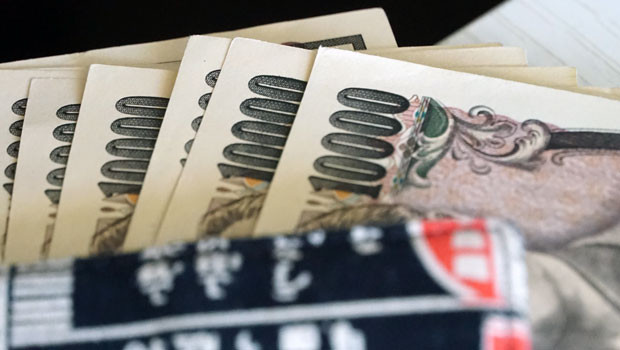Asia report: Most markets follow Wall Street into the red

Most bourses in Asia closed lower on Friday, with all major markets trading after a week peppered with holidays, after an overnight plunge for equities on Wall Street.
In Japan, the Nikkei 225 added 0.69% to close at 27,003.56 after being on holiday for several sessions, as the yen weakened 0.23% against the dollar to last trade at JPY 130.50.
“What is intriguing about Japan right now is how Japanese government bond (JGB) yields are rising but the yen is still falling,” said AJ Bell investment director Russ Mould.
“The Japanese currency stands at almost JPY 131 to the dollar - a mark last seen in 2002. That seems slightly counter-intuitive.”
Mould said ordinarily, higher yields would attract more capital.
“But JGB yields are rising much more slowly than they are in the US, where the US Federal Reserve is talking a much tougher game.
“As a result, the dollar is attracting capital at the yen’s expense.”
In Tokyo equities, fashion firm Fast Retailing was up 1.02%, while among the benchmark’s other major components, automation specialist Fanuc slipped 0.3% and technology conglomerate SoftBank Group was 2.27% lower.
The broader Topix index advanced 0.93% by the end of trading in Tokyo, settling at 1,915.91.
On the mainland, the Shanghai Composite lost 2.16% to 3,001.56, and the smaller, technology-heavy Shenzhen Composite was off 1.71% to 1,859.39.
Sentiment had been repeatedly dented in China through the week, with several sets of data laying out the economic pain of the most recent Covid-19 lockdowns and restrictions.
The Caixin/Markit services purchasing managers’ index (PMI) on Thursday came in at 36.2 - well below the 50-point level that separates expansion from contraction.
Beijing’s ‘zero-Covid’ strategy, which has seen its largest city of Shanghai locked down for more than a month, has been criticised as economically and socially unworkable given the latest strains of the coronavirus.
The Omicron strain and its subvariants are exponentially more transmissible than the first variants of Covid-19, for which the zero-Covid policy was developed in early 2020.
“The employment picture is darkening rapidly, and will be a major worry for policymakers,” said Pantheon Macroeconomics chief China economist Craig Botham after the latest service sector data.
“We are still waiting for a material shift in policy; even so, announcements so far contain nothing new.”
South Korea’s Kospi was 1.23% weaker at 2,644.51, while the Hang Seng Index in Hong Kong tumbled 3.81% to 20,001.96.
The Hang Seng Tech Index slid 5.23% in the special administrative region, amid a sell-off in technology stocks after the Nasdaq Composite lost more than 600 points in New York overnight.
Internet giant Alibaba Group was down 6.57%, while Meituan lost 4.68% and Tencent Holdings was 4.69% lower.
Chinese electric vehicle plays were also hit by the sell-off, with NIO skidding 11.47% and Xpeng 9.84% lower by the end of the day.
The blue-chip technology stocks were on the back foot in Seoul as well, with Samsung Electronics down 2.06% and SK Hynix losing 1.83%.
The moves lower in Asia came on the back of a massive plunge for the Dow Jones Industrial Average overnight, with the index losing 1,063.09 points in its biggest single-day loss since 2020.
That was a sharp reversal of fortunes from Wednesday, when US equities rallied on Fed chair Jerome Powell’s comments that the central bank was not looking to implement 75-basis point rate hikes anytime soon.
Oil prices were higher as the region entered the weekend, with both Brent crude futures on ICE and the NYMEX quote for West Texas Intermediate last rising 2.3%, to $113.45 and $110.75 per barrel, respectively.
In Australia, the S&P/ASX 200 was 2.16% lower at 7,205.60, while across the Tasman Sea, New Zealand’s S&P/NZX 50 was down 1.18% at 11,609.38.
The down under dollars were both weaker against the greenback, with the Aussie last off 0.25% at AUD 1.4094, and the Kiwi retreating 0.06% to NZD 1.5574.
Reporting by Josh White at Sharecast.com.